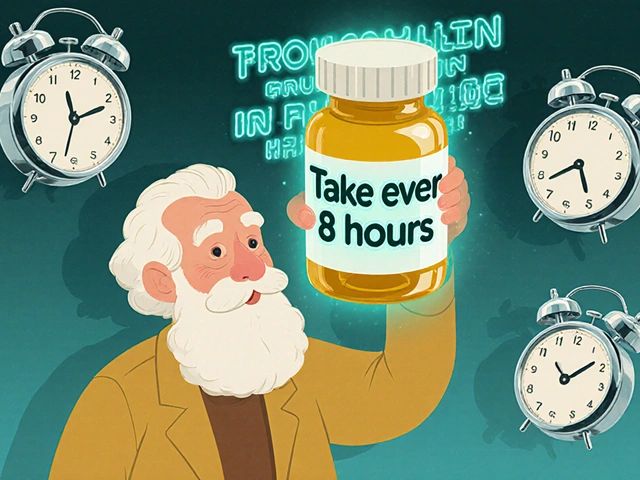In a significant crackdown on the illegal drug market, Kathmandu's law enforcement authorities have recently taken bold steps to curb the distribution and sale of illicit substances. A recent operation led to the arrest of Arjun Karki, a local drugstore operator, on charges of selling illegal drugs from his pharmacy located at the bustling center of New Road, Kathmandu. This incident has shed light on the darker undercurrents running beneath the surface of the local pharmaceutical retail industry.
The arrest came after a carefully planned operation by the police. Acting on a tip-off from a reliable source, authorities conducted a surprise raid on Karki's pharmacy, uncovering a significant stash of illegal drugs cleverly concealed within the store's legitimate medicines. Among the confiscated drugs were opioids like Tramadol and Codeine, both of which are known for their high potential for abuse and addiction. The raid didn't just uncover the illegal stash but also raised concerns about the ease of accessibility of such dangerous substances to the public.
Following the raid, the police formally charged Arjun Karki under the Narcotic Drugs Control Act, a legal framework allowing aggressive action against individuals and entities engaged in the unlawful distribution, manufacturing, and trafficking of controlled substances. The Act forms part of a broader strategy by the Nepalese government to clamp down on the spiraling crisis of drug abuse and illicit trafficking that has been affecting the nation's social and economic fabric.
This incident has prompted a broader conversation among policymakers, health experts, and the general public about the challenges in regulating the sale of prescription medications and the ways illegal drugs infiltrate the legal market. It also highlights the critical role of community vigilance and the effectiveness of police intelligence in combating the drug trade.
The police's efforts to combat the illegal drug trade in Kathmandu and wider regions are commendable. The operation leading to Karki's arrest showcases a determined stance against those who seek to profit from the sale of life-threatening substances. It is a stark reminder of the ongoing battle against drug abuse and the need for continued vigilance and strict enforcement of drug control policies.
It's crucial to understand that this incident is not an isolated one. Across the globe, there is a concerning trend of pharmacies being implicated in the illegal drug trade. This not only endangers public health but also erodes trust in healthcare systems. The case of Arjun Karki's pharmacy serves as a wake-up call for regulatory bodies and law enforcement agencies worldwide to intensify their efforts in monitoring and regulating the distribution of pharmaceuticals.
In conclusion, the arrest of Arjun Karki and the subsequent seizure of illegal drugs from his drugstore underline the pervasive issue of drug abuse and the illegal drug trade. It emphasizes the importance of stringent legal measures and the role of community and authorities in ensuring a safe and healthy society. As the case progresses, it will be imperative for stakeholders to address the root causes of this issue, ensuring that pharmacies stick to their mandate of serving the public's health and not undermining it.






Peter Richmond
October 23, 2025 AT 08:13The recent raid in Kathmandu underscores the necessity for rigorous oversight of pharmaceutical practices. Authorities acted decisively based on credible intelligence, which is commendable. Such operations serve as a deterrent to illicit activities that compromise public health. Continued collaboration between law enforcement and health regulators will be essential. Maintaining transparent legal frameworks is vital for preserving community trust.
Bonnie Lin
October 26, 2025 AT 18:33Highlighting the hidden drug trade within a legitimate pharmacy raises awareness for many. It shows that vigilance is required at every level of the supply chain. Communities benefit when illegal substances are removed from public access. Stronger monitoring can prevent similar incidents in other regions.
sara fanisha
October 30, 2025 AT 05:53Wow, that's a big win for public safety!
Tristram Torres
November 2, 2025 AT 17:13People should stop ignoring how easily pharmacies can become drug fronts. The police did the right thing, but why did it take so long? Simple checks could have caught this earlier. It's unfortunate that patients may have been exposed unknowingly. The system needs basic reforms now.
Jinny Shin
November 6, 2025 AT 04:33It is almost theatrical, the way this entire saga has unfolded, like a drama in which the unsuspecting public were merely audience members to a clandestine market operating under the guise of health. One can almost hear the whispered rumors circulating through the narrow alleys of New Road, each tale growing more elaborate as it passes from ear to ear. The pharmacy, once a sanctuary of relief, now stands revealed as a vault of vice-its shelves harboring not only legitimate cures but also insidious agents of addiction. The authorities' decisive raid punctuated a narrative that had been simmering beneath the surface, finally bringing the concealed narrative into harsh daylight. While the police acted upon a tip-off, one must wonder how many other dispensaries remain oblivious to the watchful eyes of vigilance. The arrest of Arjun Karki is not merely an isolated incident; it is a symptom of a deeper malaise afflicting the health infrastructure, where profit can eclipse purpose. The tragedy lies in the erosion of trust that patients place in those they deem caretakers. This breach invites a cascade of doubt, leaving a community to question the very authenticity of their medication. Moreover, the presence of opioids such as tramadol and codeine in these hidden caches threatens to amplify the nation's burgeoning addiction crisis. The societal repercussions extend beyond individual health, infiltrating families and economies alike. In confronting this scourge, the Nepalese government must summon resolve that transcends performative crackdowns, delving instead into systematic reforms that enforce strict inventory audits. Regulatory bodies ought to adopt state‑of‑the‑art tracking mechanisms, ensuring each prescription follows a transparent pathway. Education campaigns should empower citizens to recognize the signs of illicit dispensation. Only through a multipronged approach can the veil of secrecy be lifted permanently. The time has arrived for a concerted effort, uniting policymakers, physicians, and the public, to restore the sanctity of pharmacies as bastions of healing rather than conduits of decay.
deepak tanwar
November 9, 2025 AT 15:53While the drama is undeniable, one must question whether an isolated raid truly addresses the systemic roots of the problem. The focus on a single proprietor may serve as a convenient scapegoat, deflecting attention from broader regulatory lapses. A comprehensive audit of supply chains would yield more substantive results than episodic enforcement. Without transparent data, declarations of victory remain hollow. Policy must evolve beyond reactive measures toward proactive stewardship.
Abhishek Kumar
November 13, 2025 AT 03:13The raid is a step forward, but consistent oversight will be the real challenge. Monitoring must become routine, not occasional.